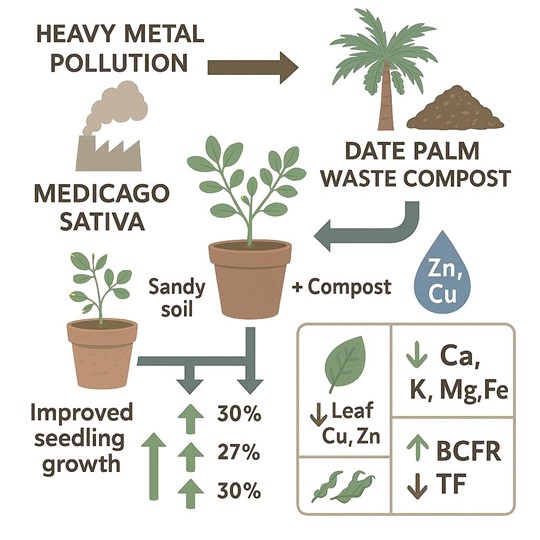
Heavy metal (HM) pollution poses a serious threat to plant growth and productivity. This study investigated the potential of date palm waste compost to enhance Medicago sativa tolerance to Zn and Cu stress and support phytoremediation. Plants were grown in sandy soil with or without 50% compost and irrigated with nutrient solutions containing high levels of Zn and Cu. Compost amendment significantly improved growth, increasing leaf, stem, and root biomass by 30%, 27%, and 30%, respectively. Despite elevated soil Zn and Cu levels, metal accumulation in leaves decreased, indicating reduced bioavailability. Compost also enhanced nutrient uptake (Ca, K, Mg, Fe) in both leaves and roots. Root bioconcentration factors increased, while shoot translocation factors decreased, suggesting improved phytostabilization. Compost treatments increased microbial colonies, with Zn and Cu addition boosting bacterial counts by 60% and 70%, respectively, though Cu reduced fungal numbers by 70%. Microbial diversity also shifted, notably in bacterial communities, due to the compost's high organic matter and carbon content. PCA analysis revealed distinct mineral distribution patterns across plant tissues under compost treatment. These findings highlight the potential of date palm compost to improve soil quality, support beneficial microbes, and enhance M. sativa phytoremediation capacity under heavy metal stress.
Total file downloads: 15